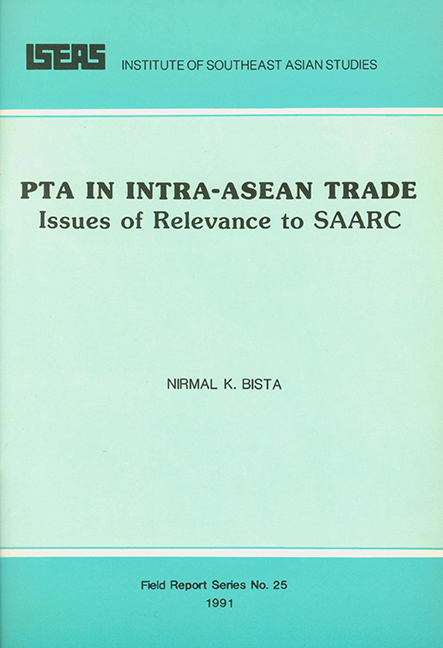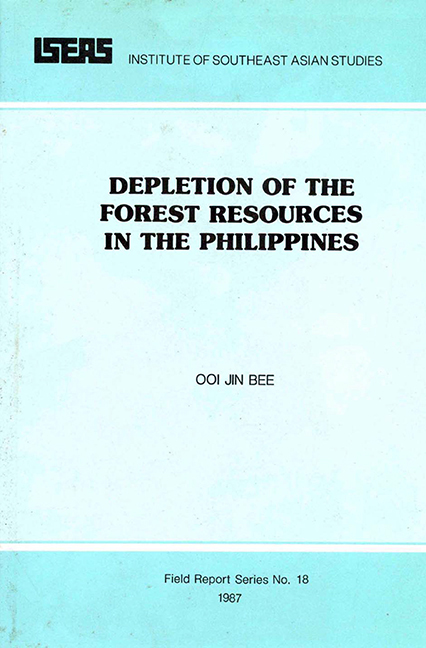Refine search
Actions for selected content:
4 results in Field Reports

PTA in Intra-ASEAN Trade
- Issues of Relevance to SAARC
-
- Published by:
- ISEAS–Yusof Ishak Institute
- Published online:
- 21 October 2015
- Print publication:
- 01 January 1991

Depletion of the Forest Resources in the Philippines
-
- Published by:
- ISEAS–Yusof Ishak Institute
- Published online:
- 21 October 2015
- Print publication:
- 01 January 1987

ASEAN-South Asia Trade
- Primary Commodities as a Component in South-South Co-operation
-
- Published by:
- ISEAS–Yusof Ishak Institute
- Published online:
- 21 October 2015
- Print publication:
- 01 January 1991

Between Two Worlds
- Modern Wives in a Traditional Setting
-
- Published by:
- ISEAS–Yusof Ishak Institute
- Published online:
- 21 October 2015
- Print publication:
- 01 January 1988
